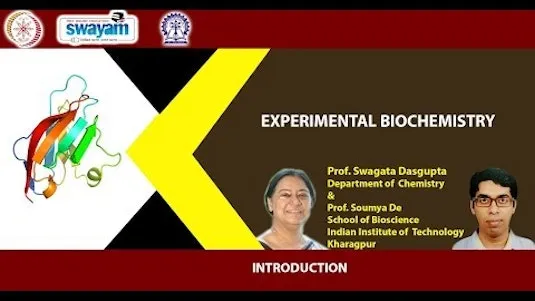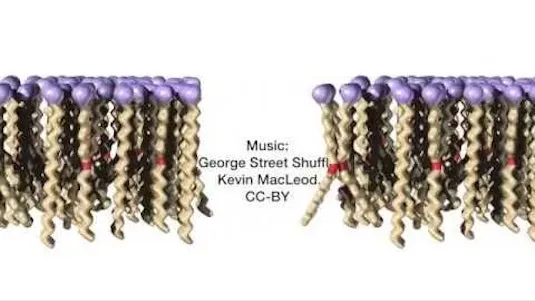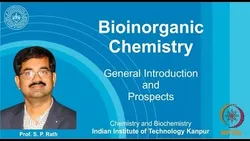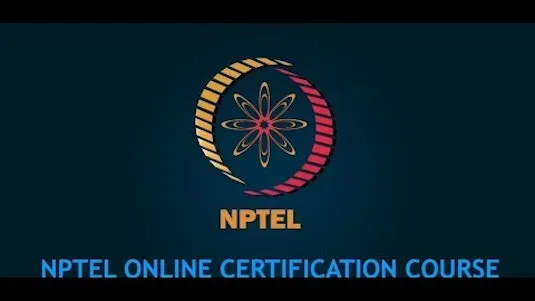
Experimental Biochemistry 
This Experimental Biochemistry course is designed to provide undergraduate students in biochemistry, molecular biology, chemistry and other related biological sciences with the skills and knowledge to work with biomolecules in the laboratory. Through weekly topics, demonstrations, and assignments, students will learn the basics of biochemistry laboratory techniques and higher level concepts to prepare them for future research and development projects. This course is suitable for students with a course in biochemistry in their curriculum and is applicable to biotechnology and pharmaceutical companies. ▼
ADVERTISEMENT
Course Feature
![]() Cost:
Cost:
Free
![]() Provider:
Provider:
Swayam
![]() Certificate:
Certificate:
Paid Certification
![]() Language:
Language:
English
![]() Start Date:
Start Date:
22nd Jan, 2023
Course Overview
❗The content presented here is sourced directly from Swayam platform. For comprehensive course details, including enrollment information, simply click on the 'Go to class' link on our website.
Updated in [May 25th, 2023]
Course Overview:
In this course, undergraduate students in biochemistry, molecular biology, chemistry, and related disciplines will gain essential skills in working with biomolecules in the laboratory. The course provides a comprehensive understanding of basic biochemistry laboratory techniques, along with higher-level concepts for future research and development projects. Each week, students will explore different topics, including theory and experimental demonstrations, followed by graded assignments.
Skill Development:
Through the "Experimental Biochemistry" course, students will develop practical skills in handling biomolecules, performing laboratory experiments, and analyzing experimental results. They will learn techniques such as protein purification, DNA/RNA analysis, enzymatic assays, and spectroscopy. These skills are highly valuable for students pursuing careers in biotech and pharma industries.
Preparation for Research:
By gaining proficiency in biochemistry laboratory techniques, students will be well-prepared for future research endeavors. The course equips them with the necessary knowledge and practical skills to conduct scientific experiments, design protocols, troubleshoot issues, and interpret data. It lays a strong foundation for students interested in pursuing research and development projects in academia or industry.
Related Learning Suggestions:
To complement the "Experimental Biochemistry" course, students can further enhance their understanding and skills through additional learning resources. They can explore online watercolor courses for a creative outlet, engage in abstract watercolor painting as a form of expression, or consider experimental biochemistry training programs that offer specialized workshops and advanced techniques in the field.
By enrolling in the "Experimental Biochemistry" course, students will acquire essential laboratory skills, develop a strong foundation in biochemistry, and gain the confidence to pursue research opportunities in the biotech and pharma industries. This course is ideal for undergraduate students in chemistry, biochemistry, and biotechnology, providing them with the necessary expertise to excel in their academic and professional endeavors.
[Applications]
Students who have taken this course in Experimental Biochemistry can apply their knowledge and skills to a variety of industries, such as biotechnology and pharmaceutical companies. They can use their understanding of laboratory techniques to develop new products and processes, as well as to analyze existing ones. Additionally, they can use their knowledge of biochemistry to develop new methods of drug delivery and to improve existing treatments. Furthermore, they can use their understanding of the underlying theory to develop new research projects and to analyze existing ones.
[Career Paths]
1. Research Scientist: Research scientists are responsible for designing and conducting experiments to explore and understand the biochemical processes of living organisms. They use a variety of laboratory techniques to analyze and interpret data, and develop new methods and technologies to further their research. Research scientists are also responsible for writing reports and presenting their findings to colleagues and other stakeholders. The development of new drugs and treatments is a major focus of research scientists in the biochemistry field.
2. Biochemist: Biochemists are responsible for studying the chemical processes of living organisms. They use a variety of laboratory techniques to analyze and interpret data, and develop new methods and technologies to further their research. Biochemists are also responsible for writing reports and presenting their findings to colleagues and other stakeholders. The development of new drugs and treatments is a major focus of biochemists in the biochemistry field.
3. Clinical Laboratory Scientist: Clinical laboratory scientists are responsible for performing laboratory tests on patient samples to diagnose and treat diseases. They use a variety of laboratory techniques to analyze and interpret data, and develop new methods and technologies to further their research. Clinical laboratory scientists are also responsible for writing reports and presenting their findings to colleagues and other stakeholders. The development of new diagnostic tests and treatments is a major focus of clinical laboratory scientists in the biochemistry field.
4. Biotechnology Engineer: Biotechnology engineers are responsible for designing and developing new biotechnological products and processes. They use a variety of laboratory techniques to analyze and interpret data, and develop new methods and technologies to further their research. Biotechnology engineers are also responsible for writing reports and presenting their findings to colleagues and other stakeholders. The development of new biotechnological products and processes is a major focus of biotechnology engineers in the biochemistry field.
[Education Paths]
1. Bachelor of Science in Biochemistry: A Bachelor of Science in Biochemistry is a four-year degree program that focuses on the study of the chemical processes and structures of living organisms. Students will learn about the structure and function of proteins, carbohydrates, lipids, and nucleic acids, as well as the biochemical pathways and processes that occur in living organisms. This degree is becoming increasingly popular as biotechnology and pharmaceutical companies are looking for graduates with a strong background in biochemistry.
2. Master of Science in Biochemistry: A Master of Science in Biochemistry is a two-year degree program that focuses on advanced topics in biochemistry. Students will learn about the structure and function of proteins, carbohydrates, lipids, and nucleic acids, as well as the biochemical pathways and processes that occur in living organisms. This degree is becoming increasingly popular as biotechnology and pharmaceutical companies are looking for graduates with a strong background in biochemistry.
3. Doctor of Philosophy in Biochemistry: A Doctor of Philosophy in Biochemistry is a four-year degree program that focuses on advanced topics in biochemistry. Students will learn about the structure and function of proteins, carbohydrates, lipids, and nucleic acids, as well as the biochemical pathways and processes that occur in living organisms. This degree is becoming increasingly popular as biotechnology and pharmaceutical companies are looking for graduates with a strong background in biochemistry.
4. Master of Business Administration in Biotechnology: A Master of Business Administration in Biotechnology is a two-year degree program that focuses on the business aspects of biotechnology. Students will learn about the business aspects of biotechnology, such as marketing, finance, and operations. This degree is becoming increasingly popular as biotechnology and pharmaceutical companies are looking for graduates with a strong background in business and biotechnology.
Course Provider

Provider Swayam's Stats at AZClass
Discussion and Reviews
0.0 (Based on 0 reviews)
Explore Similar Online Courses

Introduction to Text To Speech With Python

How to create a JavaScript Game Number Guessing Game Project

Python for Informatics: Exploring Information

Social Network Analysis

Introduction to Systematic Review and Meta-Analysis

The Analytics Edge

DCO042 - Python For Informatics

Causal Diagrams: Draw Your Assumptions Before Your Conclusions

Whole genome sequencing of bacterial genomes - tools and applications

Principles of Biochemistry

Bioinorganic Chemistry


Start your review of Experimental Biochemistry